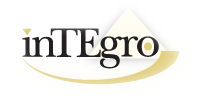Did you ever suspect that your “true north” isn’t actually true? If so, it could be on account of “variation” or “deviation;” let me explain. Especially before the wonders of GPS and electronic navigation, to sail a true course it was important to know about variation and deviation, two factors that influence a ship’s compass reading. True north is geographic, directly atop the earth’s north pole. Variation is magnetic influence caused by the location of iron deposits near the geographic north pole and magnetic flows around the earth; any compass aligns itself with this magnetic north. Deviation is more local magnetic influence, often caused by location of a boat’s motor and other metal objects.
On a long ocean sail a few years back I got to thinking that life and work have their own variations of “true north,” “variation” and “deviation.” Our actual heading may not be what we think given the influence of large, seemingly unmovable influences out of our control (variation,) as well as more local influences (deviation.) Just as when navigating the open sea, we may be significantly off course without knowledge of how those influences large and small affect our heading.
Variation and its influence on our life and work include things like hard-wired personality traits and the cultures where we live or work. Like variation that influences a compass, they are large influences that might change a little over a long period but are relatively steady. (Easterly or westerly variation navigating is different depending on where we are, usually changing only a few minutes to a degree or two each year.) Deviation, those more minor or local influences, could be positive or negative experiences any given day, whom we work with, our moods or daily distractions. (Deviation navigating varies depending on our course and placement of objects; while a boat’s engine is immovable we can move binoculars and other metal objects or instruments near a compass.)
Navigating at sea or navigating life and work without awareness of variation or deviation and their influence contributes to disappointing and even fatal consequences. Differences of a few minutes or a degree of latitude or longitude over long distances and periods can spell the difference between a successful voyage and breaking up on the rocks. What about our hard-wired personality traits or major influences (variation) might prevent us from seeing our true course; how can we adjust for them? How are daily influences or distractions (deviation) affecting our course; how might we manage or remove those?
In my work I use the Hogan Development Survey, a personality assessment that identifies any of eleven potential personality “derailers.” “Excitability” is one such derailer, for example; armed with knowledge that excitability influences how we interpret situations and react to them, we would be in a much better position to compensate for the influence of that “variation.” Deviation at sea is influenced by not only local objects and heading, but also by a sailboat’s heel, or angle to the water. The more wind and water force on a sailboat, or stress, the greater the heel. Can you remember instances when the degree of stress you were experiencing influenced your perception and bearings? That was deviation. Just as on account of variation and deviation a ship’s compass doesn’t “see” true but magnetic north, we do not see things as they are but as they are influenced by our own personal variation and deviation.
Let me offer some strategies for successful navigation of life and work, accounting for variation and deviation:
- First, know your “true north” and what course you want to be on. If you don’t know where you’re going, then any wind is favorable. (But it might take you to an unfavorable port or put you on the rocks.) Set your sights on a worthy and clear goal, along with strategies for achieving it and “waypoints” along the way.
- Know that “variation” and “deviation” influence all of us, and that each of ours is different. Know that what we believe to be true or a true course is subject to the distortion of our personal filters, and that pooling our collective intelligence gives us the most favorable odds of achieving shared goals.
- Strengthen self-awareness, the foundation for emotional intelligence. Take advantage of tools like the Hogan surveys and Myers-Briggs Indicator as well as feedback to know the sources of our “variation” and “deviation” and how they influence our perception and judgment.
- Remember that variation and deviation change, over time or based on course changes that we make. Take time to check your bearings and determine if you are still on course.
- Mariners know what impact variation and deviation have on their ship’s compass and correct accordingly. (Correcting from compass to true headings, for example, subtracting westerly variation and adding easterly variation; converting true bearings to compass readings they add westerly variation and subtract easterly variation.) Likewise, navigating life or work and knowing the nature and strength of our own variation and deviation we can make our own corrections to follow a truer course.
Are you clear what port you are steering for?
Do you know the nature and strength of your “variation” – those major influences distorting your course, and of your “deviation” – daily detractors from steering a true course?
Are you making appropriate adjustments to stay on course and achieve your goals?
“If a man does not know what port he is steering for, no wind is favorable to him.”
Seneca
“The winds and waves are always on the side of the ablest navigators.”
Edward Gibbon





